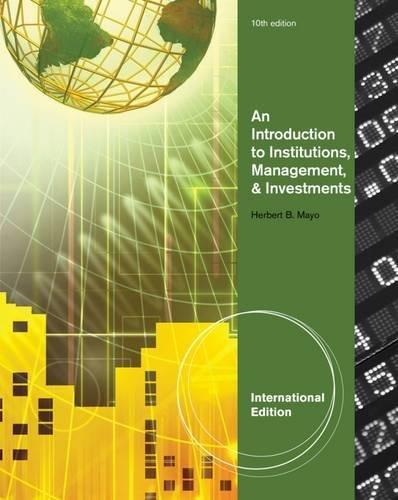Question
An Average Price call is a type of Asian option that pays off max{0, Savg K) at maturity where Savg is the average of the
An Average Price call is a type of Asian option that pays off max{0, Savg K) at maturity where Savg is the average of the stock prices from the start of the call to its maturity. For example, consider the following path for stock prices: Day Price
0 $100 1 $110 2 $121 3 $133.1
In this case, the average stock price = (100 + 110 + 121 + 133.1)/4 = $116.025. [Note that although there are 4 days and 3 periods, the average is taken from the start date (i.e. over the 4 prices).] Consider an Average Price call with a maturity of 3 months (and can be exercised only at maturity), and an exercise price of $99. The underlying stock is currently traded at $100, while the risk-free rate is 5% p.a. Use a 3-period Binomial tree to price this call, given that you have determined that u = 1.1 and d = 0.9. Also, at time 0, what is the (risk-neutral) probability that this call will end up in the money? Note that although the tree for the stock price recombines, the calls payoff depends on the path that the stock price has taken. For example, the payoff under the path uud is no longer the same as under the path udu, since the average prices under the two paths are not the same. Nevertheless, the probabilities that the two paths will occur are the same.
Step by Step Solution
There are 3 Steps involved in it
Step: 1

Get Instant Access to Expert-Tailored Solutions
See step-by-step solutions with expert insights and AI powered tools for academic success
Step: 2

Step: 3

Ace Your Homework with AI
Get the answers you need in no time with our AI-driven, step-by-step assistance
Get Started


